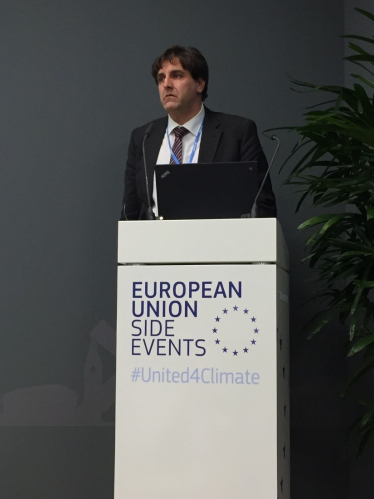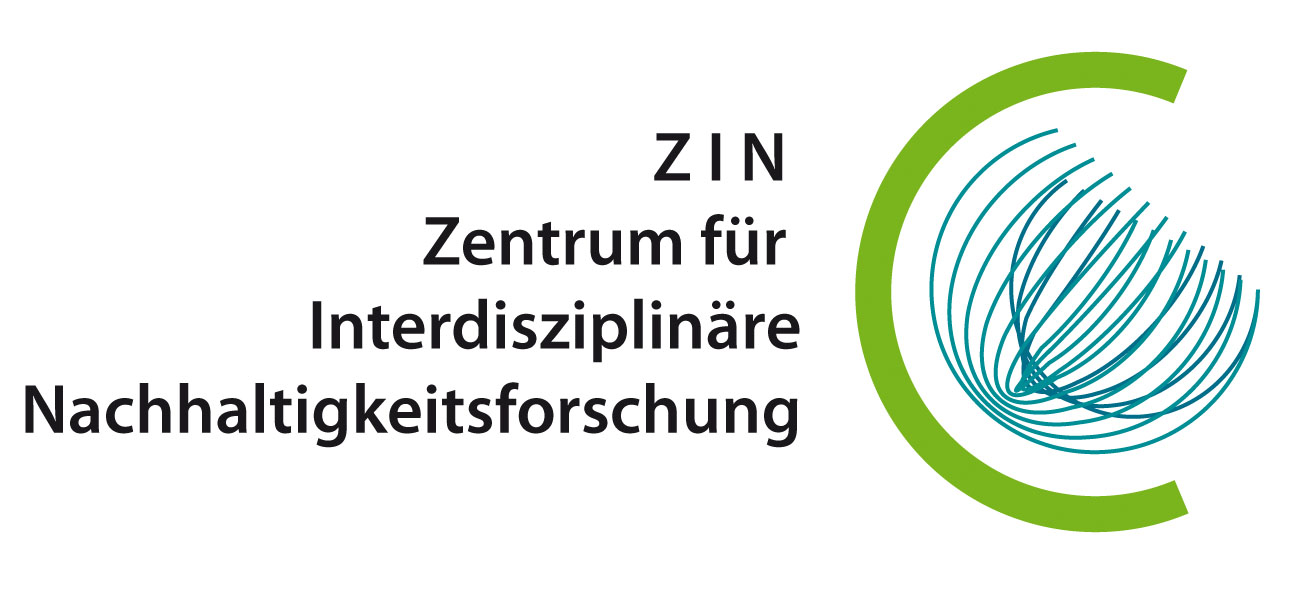World climate summit in Bonn: Professor LÃķschel guides a discussion on âEnergy Savings in Housingâ

How to sensitize private households for energy conservation? Under which conditions do campaigns on energy saving succeed? How can science evaluate interdependencies? Professor Andreas LÃķschel (University of MÞnster) and other leading environmental economists presented scientific results from current projects on these matters at the Side Event âEnergy Savings in Housingâ that took place in the course of the world climate summit in Bonn (COP23).
The event was jointly hosted by the University of MÞnster and the Centre for European Economic Research (ZEW) and took place in the pavilion of the EU. It offered a lively discussion with a great variety of contributions from behavioural research, the corporate sector and consumer advice centers. An environmental psychologist of the University of Groningen, environmental economists of the ZEW and the University of MÞnster, as well as representatives of the South Pole Group, Microsoft and the consumer advice center of North Rhine-Westphalia discussed and jointly presented their findings.
Campaigns on energy saving in private households on the test stand
Prof. Dr. Andreas LÃķschel, director of the CAWM, and Dr. Martin Kesternich, deputy director of the research field âEnvironmental and Resource Economics, Environmental Managementâ at ZEW, highlighted the challenges in analyzing interdependencies to evaluate campaigns on energy conservation. Dr. Martin Kesternich provided insights into a recent field study that is realized in the framework of EU-financed Horizon-2020-project âStep by Stepâ. In this study, after households are contacted personally, researchers individually accompany them by means of a web-based platform that provides tips for energy saving and feedback to the participants. Kesternich stressed that one of the main challenges in energy saving campaigns was to directly address the households and to sensitize them for the topic without prior knowledge of their specific needs and experiences. Therefore, they used a âfoot in the doorâ-technique, providing households with easily feasible tips that gradually increased over time. Prof. Andreas LÃķschel is facing similar challenges within two EU-financed projects: VISE â a virtual Institute for Smart Energy and Horizon-2020-project PENNY and ENABLE.EU.
Saving energy by means of technology: Retaining control
Other contributions from the panel stressed the importance of individual motives for energy conservation. While some households mainly emphasized financial aspects, others focused more on social norms and their independent action, e.g. their contribution to climate protection. This range of motives also reflected in the panelistsâ assessments of possible areas of tension between the use of data-based technology on energy consumption regulation and the consumersâ autonomy. Even though those technologies could support households in implementing their savings targets, consumers would often lose trust in complex systems, especially when they were using detailed and sensitive data. Therefore, all participants agreed that successful technological solutions always need to take into account individual needs: The consumers have to retain control.
Profitable Side Event in Bonn
At the end of the event, Prof. LÃķschel summed up the eventâs exciting impulses for decision-makers and consumers in the rapidly evolving digitalization of the energy sector. Especially the new possibilities to reduce energy consumption in buildings lead to an interesting discussion. The panelists drew the conclusion that both consumers as well as the regulatory framework play an important role in raising the technical potential of reducing energy consumption in households.
[Copyright: Chair of Microeconomics with a Focus on Energy and Resource Economics]
[Picture: Chair Prof. LÃķschel]

